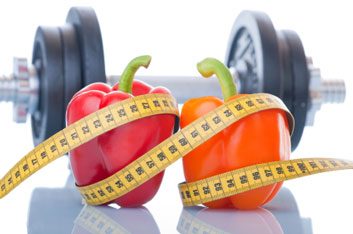
Eat a rich diet
Every journey has its ups and downs. Exercise can get particularly bumpy when you’re feeling low on energy and sore from your three-day-old workout. Proper nutrition can break through some of these barriers by enhancing performance and recovery.
To really reap the benefits of your hard work at the gym, focus on eating a diet rich in antioxidants, minerals, protein, complex carbs and healthy fats. To put the spring back in your workout routine, Vancouver-based holistic nutritionist Rich Ralph recommends “eating mindfully and focusing on a whole foods diet.” Next time you’re feeling achy and sluggish, indulge in these tasty ideas to power your workout.
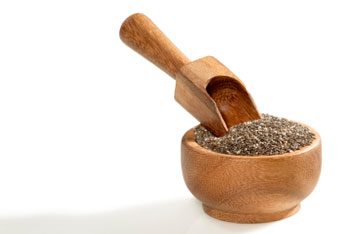
1. Chia seeds
Why they’re good: “Chia seeds have near double the protein of other seeds and grains, approximately five times the calcium of milk and double the potassium of bananas,” says Ralph. Athletes need to keep their bones strong and the calcium from chia seeds is especially easy for the body to absorb.
When to eat them: “This makes a great snack 15 to 20 minutes after the workout,” says Ralph. For instance, try adding a handful of chia seeds to your post-workout smoothie. For optimal recovery, Ralph also suggests adding chia seeds to a big salad two to four hours later.
Expert tip: If you’re in a pinch for time, Ralph recommends cutting an apple into wedges and sprinkling chia seeds on top for a quick and nutritious calcium and vitamin hit.
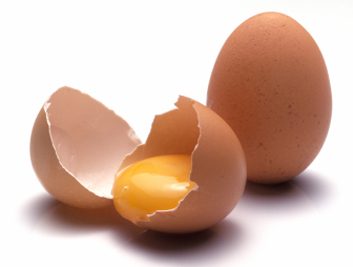
2. Eggs
Why they’re good: The protein in eggs, which accounts for nearly 50 percent of an egg’s makeup, consists of all eight essential amino acids crucial in muscle and bone cell growth and regeneration. Eggs are also a source of calcium, iron, phosphorus, zinc and vitamins A, D, E and B.
When to eat them: Have eggs within 20 to 30 minutes of your workout. Hard-boiled eggs are also an ideal mid-workout snack for endurance athletes. “I eat eggs as a post-workout recovery snack,” says Ralph, who rollerbladed from St. John’s, Nfld., to Vancouver, B.C., in only four months back in 2007.
Expert tip: When buying eggs, Ralph advises doing your research and making sure you’re getting free-range, pastured eggs. This avoids any potential health risks associated with added stimulants, antibiotics or hormones sometimes used in non-organic dairy farms.
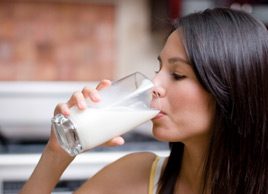
3. Kefir
Why it’s good: “Kefir [a fermented milk product similar to yogurt] is particularly rich in vitamins B1 and B2, calcium, folic acid, magnesium, and vitamin A,” says Ralph. What makes kefir unique is the fermentation process, which makes it incredibly easy to digest. This lets the body focus on assimilating and absorbing nutrients and protein, necessary for muscle growth and regeneration. Tryptophan, an essential amino acid found in kefir, relaxes the nervous system, making the food ideal for late-night exercisers.
When to have it: Kefir makes a quick and easy recovery drink 30 minutes post-workout.
Expert tip: Better known for its benefits for digestive health, kefir helps restore healthy intestinal bacteria destroyed by long-term refined and processed diets or frequent use of antibiotics. To optimize digestion, sprinkle some ground flaxseed on your kefir.
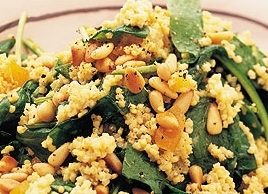
4. Millet
Why it’s good: Millet is an ancient grain with a sweet, nutty flavor. It boasts a complete essential amino acid profile, making it a whole protein. “Millet is abundant in magnesium, calcium and phosphorus,” says Ralph, “which are involved in energy production crucial for athletes.”
Preparing millet is easy. Add two parts water to one part millet, cover and bring to a boil. Once the boiling point is reached, simmer for approximately 20 minutes or until millet has absorbed all the water. For inspiration, check out our Millet with Spinach and Pine Nuts recipe.
When to eat it: Because of its high protein content, Ralph suggests eating millet as your main meal three hours prior to or after exercise. This will boost recovery and prevent fatigue the following day.
Expert tip: For a healthy and tasty oatmeal alternative, add small pieces of orange and ground almonds or walnuts to a bowl of cooked millet and drizzle some raw honey on top.
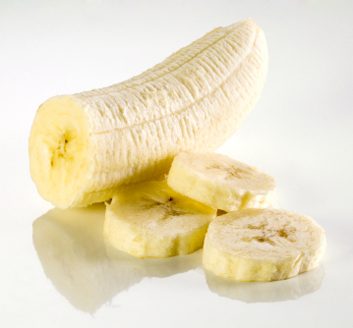
5. Bananas
Why they’re good: Bananas are chock full of vitamins and minerals. “But more importantly,” says Ralph, “muscles are stimulated by electrical impulses and the potassium [and sodium] in bananas is a fundamental factor in this.” In other words, to stay hydrated and ensure smooth muscle recovery, eat a banana.
When to eat them: Because they’re easy to digest and a good energy source, eat bananas 30 to 40 minutes prior to exercise. For long workouts, Ralph suggests snacking on a banana to get that electrolyte boost.
Expert tip: It’s never good to consume too much of anything, no matter how healthy. Some naturopathic doctors are noticing a rise in banana allergies among their patients. These experts suggest eating bananas only once every three to four days to avoid stimulating a potential sensitivity.
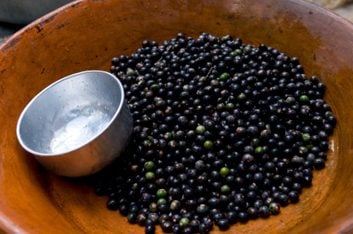
6. Acai Berries
Why they’re good: “Acai berries are a phenomenal fruit because they’re especially high in antioxidants,” says Ralph. They are also rich sources of amino acids, essential fatty acids and vital trace minerals, all which aid in muscle contraction.
When to eat them: Include them in a post-workout shake within 30 minutes of exercise.
Expert tip: The nutritional value of acai is concentrated in the pit of the fruit. To reap its full benefits, mix the acai pulp into a smoothie, quinoa porridge dish or a probiotic yogurt. You can find frozen acai pulp at your local health food store or in the organic section of some grocery stores.
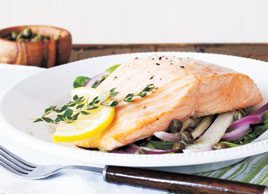
7. Salmon
Why it’s good: Because fish is a complete protein and easily usable by the body, it makes it an excellent food for muscle growth. “You also want to think about your joints,” says Ralph. “The omega-3s in salmon keep inflammation down and the joints lubricated.”
When to eat it: Loading up on protein before exercise will minimize muscle breakdown, so Ralph suggests incorporating salmon into your main meal three hours post workout.
Expert tip: “I can’t emphasize enough how important it is to make sure you’re getting good-quality wild salmon instead of farmed salmon” says Ralph. “The environmental impact of farming practices is devastating, not to mention that farmed salmon are known to contain high levels of sea lice and disease. Smaller fish, like sockeye salmon, are better choices because they accumulate less toxins from their environment.”
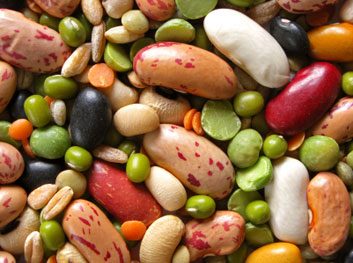
8. Beans
Why they’re good: Beans, known for their high protein and fibre content, are ideal for the vegetarian and weight-conscious individual. These little pods are a great source of energy-boosting B vitamins and antioxidant vitamins A, C and E. They are also sources of calcium, potassium, phosphorus and folic acid, while low in calories and fat.
When to eat them: Eat beans two or three hours before exercise, says Ralph. “But as a general rule,” he notes, “I suggest consuming beans on a regular basis.”
Expert tip: It’s no secret some of us have trouble digesting beans. To improve assimilation, Ralph soaks his dried beans for eight to 10 hours before cooking them. “This will optimize their digestion and ensure nutrient bioavailability.”
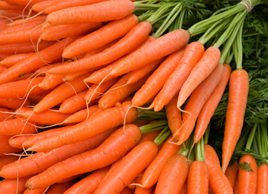
9. Carrots
Why they’re good: One cup of carrot provides nearly 600 percent of your daily recommended allowance of vitamin A, a powerful antioxidant. Carrots also contain vitamin C and hard-to-come-by selenium. Together, this combination helps combat free radicals created during exercise.
When to eat them: Carrots make a great snack before or after your workout.
Expert tip: According to Ralph, studies indicate juicing can be very beneficial as it concentrates the nutrients and essentially pre-digests the carrots so they’re easy on the digestive tract. “If you can afford the time and [have a juicer], I would always encourage it,” says Ralph. For an antioxidant boost, juice six carrots and a handful of parsley.
Related:
• What to eat before you exercise
• 7 top fitness foods
• 14 ways to make your fitness goals stick
